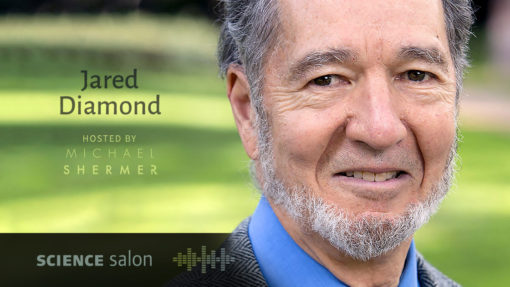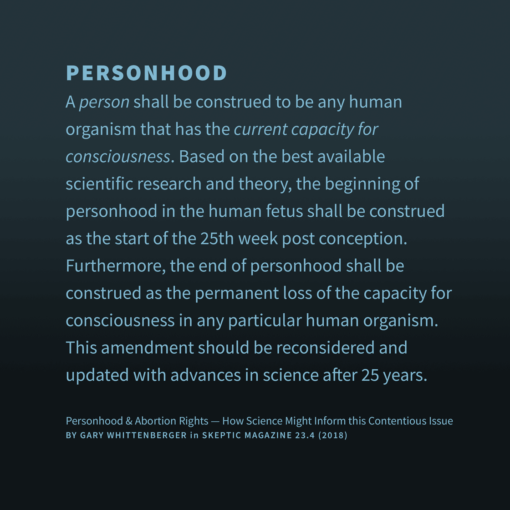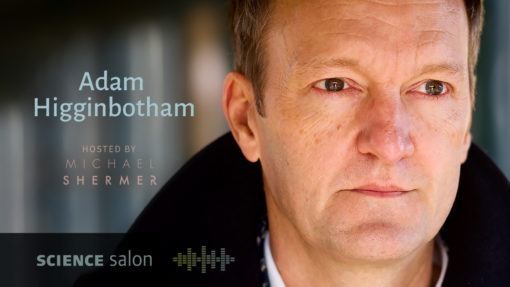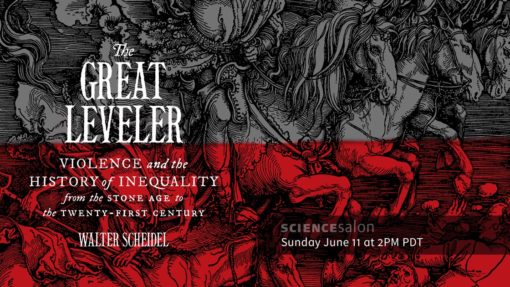history

In a special edition of the Science Salon Podcast Dr. Shermer brought a camera crew to Jared Diamond’s home in Los Angeles for an especially intimate portrait of the man and his theories. You won’t want to miss this conversation, one of the best we’ve yet recorded, with one of the most interesting minds of our time, perhaps of all time.
In the new book America Before: The Key to Earth’s Lost Civilization, author Graham Hancock looks for traces of a lost Ice Age civilization in the Americas. Despite relying on controversial research and drawing extreme conclusions, his hunt still comes up short.

Although it’s been 45 years since Roe v. Wade, abortion continues to be a highly controversial and polarizing issue. In this essay, Gary Whittenberger articulates the philosophical and scientific foundation for a third option between the two extremes of pro-life and pro-choice — the pro-person position — after examining the evidence for the best possible answer to the question: “When does the human fetus acquire the capacity for consciousness?”

In Science Salon Podcast # 53, Michael Shermer speaks with the author of the newly published book Midnight in Chernobyl: The Untold Story of the World’s Greatest Nuclear Disaster, Adam Higginbotham who tells what really happened at Chernobyl, by far the worst nuclear disaster in history, and why it took so long to discover what really happened.

Are mass violence and catastrophes the only forces that can seriously decrease economic inequality? To judge by thousands of years of history, the answer is yes. Tracing the global history of inequality from the Stone Age to today, the Stanford University historian Walter Scheidel shows that inequality never dies peacefully. Inequality declines when carnage and disaster strike and increases when peace and stability return.

Mike McRae provides a glimpse into the history of two competing systems of biology: life as complex chemistry, and the abandoned theory of vitalism. (Part 3 of 3.)

Mike McRae provides a glimpse into the history of two competing systems of biology: life as complex chemistry, and the abandoned theory of vitalism. (Part 2 of 3.)

Mike McRae provides a glimpse into the history of two competing systems of biology: life as complex chemistry, and the abandoned theory of vitalism. (Part 1 of 3.)
Jared Diamond considers the risks and mistakes that people and nations make. Based on his extensive research on and experience with the human condition Dr. Diamond considers the future based on what we know about the past — historically and personally.
Daniel Loxton shares video from the Preserving Skeptical History workshop at The Amazing Meeting 2013 conference, in which he was joined by Ray Hyman, Robert Sheaffer, Susan Gerbic, and Tim Farley.
Daniel Loxton provides links to many of his pieces which touch upon skeptical history. (Updated from a piece published previously at the now-retired Skepticblog.)
Robert Temple is lauded and often cited by the New Age and alternative archaeology movements for his excellent scholarship and broad understanding of mythology and ancient history. In this week’s eSkeptic, Jason Colavito explores Temple‘s use of the Greek myth of Jason’s quest for the Golden Fleece to see if it stands up to scrutiny.
Jared Diamond, author of the Pulitzer-prize winning Guns, Germs, and Steel and the bestselling work in environmental history Collapse, here reveals for the first time his methodology in the applied use of natural experiments and the comparative method.
In this Caltech lecture, Carl Zimmer, an award-winning science writer (New York Times, Discover), takes readers on a frightening tour of the H1N1 flu virus, how it evolved, and what deadly diseases tell us about how evolution works.
Culled from the expansive work of Carl Sagan, we present some of his own words on the cosmos, ETs, childhood, genes, brains, pseudoscience, science literacy, nonsense, uncertainty, biology, history and God.
In this lecture based on his new book, Jonathan Kirsch delivers a sweeping and provocative history that explores how the Inquisition was honed to perfection and brought to bear on an ever-widening circle of victims by authoritarians in both church and state for over 600 years…
Before the sacred authors were declared sacred, they were fair game for attack or revision. If you open up the Bible and read it straight through, you will notice two things that should not be true if it had been written as a coherent whole and with a single purpose. First, the Bible is quite repetitious; second, the Bible frequently seems to contradict itself…
In this week’s eSkeptic, Kenneth Krause reviews Nicholas Wade’s book, Before the Dawn: Recovering the Lost History of Our Ancestors.
One of the greatest thinkers of our age tackles one of the most important questions of our time: why people believe in God and how religion shapes our lives and our future. In this lecture, based on his new book of the same title, Dr. Dennett shows that for the vast majority of people there is nothing more important than religion…
In this week’s eSkeptic, we present an article that appeared as the introduction to a special section on ”Darwin & Evolution” in the November issue of Natural History magazine.
← PREVIOUS
NEXT →















